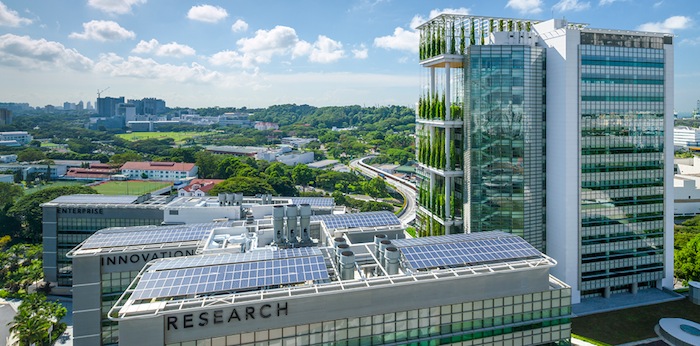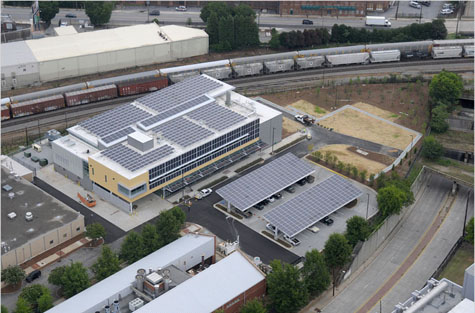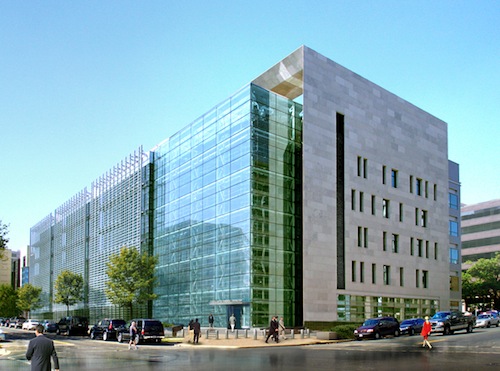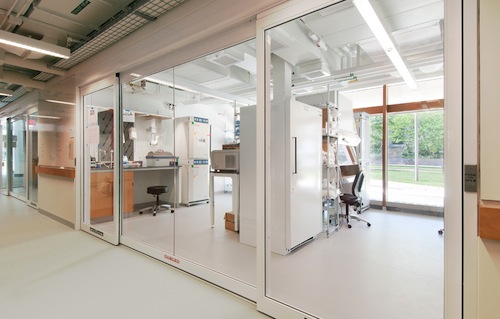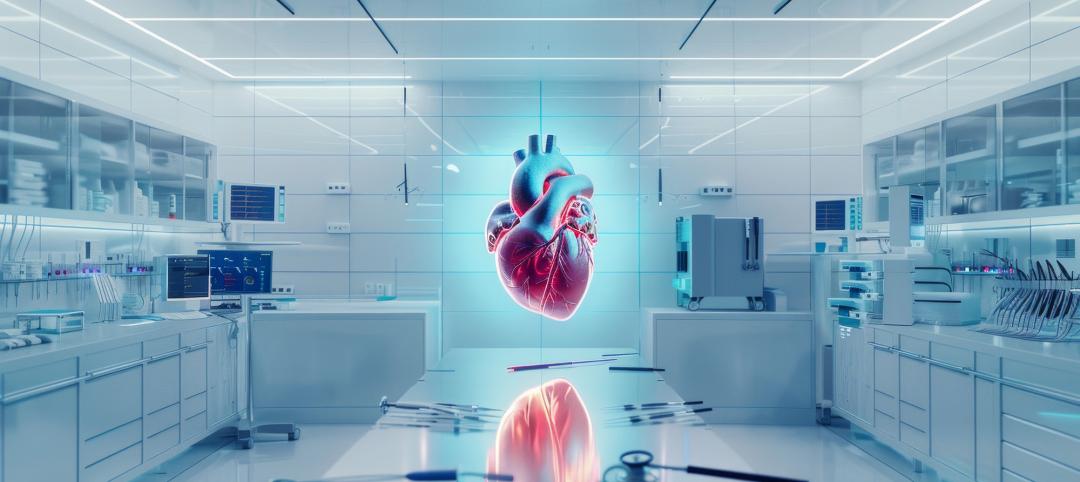The Campus for Research Excellence and Technological Enterprise (CREATE), Singapore, has been named Laboratory of the Year by R&D Magazine. Now in its 47th year, the competition recognizes excellence in research and science laboratory design, planning, and construction.
Designed by Perkins+Will, the CREATE facility is a collaborative project led by the Singapore National Research Foundation, involving Singapore-based research institutions as well as participating international universities and multinational corporations. The campus, encompassing ~67,000 sm in four buildings, is intended to support the work of ~1,200 researchers. Current participants include the National University of Singapore, MIT, the Swiss Federal Institute of Technology, the Technical University of Munich, Technion-Israel Institute of Technology, UC-Berkeley, the Hebrew University of Jerusalem, Ben-Gurion University, Peking University, Shanghai Jiao Tong University, and Cambridge University. The buildings take advantage of the tropical climate, using wind turbines, green roofs, and daylighting as integral parts of the design.
The Georgia Institute of Technology Carbon-Neutral Energy Solutions Laboratory, Atlanta, received High Honors. The 42,000-sf LEED Platinum lab, incorporating interdisciplinary high-bay space, was designed by HDR Architecture. Sustainable features include passive energy technologies, high-tech glazing including a PV screen wall, high-efficiency lighting, energy recovery, radiant heating, and displacement ventilation.
Two Special Mentions, honoring aspects of a project, were awarded. The District of Columbia Consolidated Forensic Laboratory, by HOK, was given for the facility's excellence in providing space for collaborative science. This 287,000-sf building supports public health and forensic science departments for Washington, D.C., and is targeting LEED Gold.
The Sherman Fairchild Biochemistry Laboratory at Harvard University received a Special Mention for renovation. Payette Associates designed the project, which created a new home for the Stem Cell and Regenerative Biology Department in a lab built in 1981. The renovation achieved LEED Platinum.
(http://www.labdesignnews.com/news/2013/02/laboratory-year-awards-announced)
Related Stories
Building Technology | Jun 18, 2024
Could ‘smart’ building facades heat and cool buildings?
A promising research project looks at the possibilities for thermoelectric systems to thermally condition buildings, writes Mahsa Farid Mohajer, Sustainable Building Analyst with Stantec.
University Buildings | Jun 18, 2024
UC Riverside’s new School of Medicine building supports team-based learning, showcases passive design strategies
The University of California, Riverside, School of Medicine has opened the 94,576-sf, five-floor Education Building II (EDII). Created by the design-build team of CO Architects and Hensel Phelps, the medical school’s new home supports team-based student learning, offers social spaces, and provides departmental offices for faculty and staff.
Healthcare Facilities | Jun 18, 2024
A healthcare simulation technology consultant can save time, money, and headaches
As the demand for skilled healthcare professionals continues to rise, healthcare simulation is playing an increasingly vital role in the skill development, compliance, and continuing education of the clinical workforce.
Mass Timber | Jun 17, 2024
British Columbia hospital features mass timber community hall
The Cowichan District Hospital Replacement Project in Duncan, British Columbia, features an expansive community hall featuring mass timber construction. The hall, designed to promote social interaction and connection to give patients, families, and staff a warm and welcoming environment, connects a Diagnostic and Treatment (“D&T”) Block and Inpatient Tower.
Concrete Technology | Jun 17, 2024
MIT researchers are working on a way to use concrete as an electric battery
Researchers at MIT have developed a concrete mixture that can store electrical energy. The researchers say the mixture of water, cement, and carbon black could be used for building foundations and street paving.
Codes and Standards | Jun 17, 2024
Federal government releases national definition of a zero emissions building
The U.S. Department of Energy has released a new national definition of a zero emissions building. The definition is intended to provide industry guidance to support new and existing commercial and residential buildings to move towards zero emissions across the entire building sector, DOE says.
Multifamily Housing | Jun 14, 2024
AEC inspections are the key to financially viable office to residential adaptive reuse projects
About a year ago our industry was abuzz with an idea that seemed like a one-shot miracle cure for both the shockingly high rate of office vacancies and the worsening housing shortage. The seemingly simple idea of converting empty office buildings to multifamily residential seemed like an easy and elegant solution. However, in the intervening months we’ve seen only a handful of these conversions, despite near universal enthusiasm for the concept.
Healthcare Facilities | Jun 13, 2024
Top 10 trends in the hospital facilities market
BD+C evaluated more than a dozen of the nation's most prominent hospital construction projects to identify trends that are driving hospital design and construction in the $67 billion healthcare sector. Here’s what we found.
Adaptive Reuse | Jun 13, 2024
4 ways to transform old buildings into modern assets
As cities grow, their office inventories remain largely stagnant. Yet despite changes to the market—including the impact of hybrid work—opportunities still exist. Enter: “Midlife Metamorphosis.”
Affordable Housing | Jun 12, 2024
Studio Libeskind designs 190 affordable housing apartments for seniors
In Brooklyn, New York, the recently opened Atrium at Sumner offers 132,418 sf of affordable housing for seniors. The $132 million project includes 190 apartments—132 of them available to senior households earning below or at 50% of the area median income and 57 units available to formerly homeless seniors.


